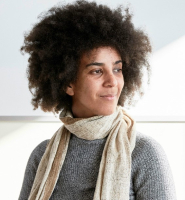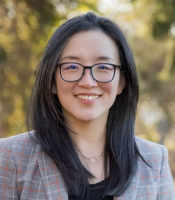The Women Changing AI and Machine Learning
Artificial Intelligence and Machine Learning are changing the world faster than we ever imagined. From health breakthroughs to ethical guidelines, the implications of these technologies stretch into every corner of our lives. And while the news tends to highlight prominent male personalities, more and more outstanding women are leading the way in AI and ML development. Not only is their research innovative; it is revolutionary, and it has a human dimension that is often missing in purely technical reports.
Allow us to share the stories of 10 amazing women who are reshaping what is possible in AI and machine learning, ensuring that the future of these technologies is inclusive, diverse, and deeply human.
Fei-Fei Li – Visionary of Human-Centered Artificial Intelligence

Should you have heard of ImageNet, you have come across Professor Fei- legacy. Often regarded as a pioneer in computer vision, she is credited with transforming the way computers perceive and analyse their surroundings. Still, her narrative is far more intricate. Ensuring that artificial intelligence is not only strong but also helpful for people is Fei-Fei Li’s great desire.
She founded the Human-Centered AI Institute at Stanford University with the goal of guiding AI development in accordance with human dignity and ethics. Her work always reminds us that technology ought to magnify human potential instead than to take its place.
Joy Buolamwini – The Fighter for Algorithmic Justice
Joy Buolamwini’s journey into AI began with a simple yet profound observation. While working with facial recognition software, she noticed that it struggled to identify her dark-skinned face. Instead of shrugging it off, she founded the Algorithmic Justice League, a movement dedicated to combating bias in AI systems.
Through her research and advocacy, Joy has exposed how machine learning algorithms can perpetuate and even amplify societal biases. Her TED talk, aptly titled “How I’m Fighting Bias in Algorithms,” has resonated globally, sparking conversations about fairness, accountability, and transparency in AI.
Kate Crawford – The Social Life of AI Historian

Kate Crawford is not only a researcher, but also a storyteller who puts the intricate relationship between society and AI into plots that everyone can grasp. Crawford is a senior principal researcher at Microsoft Research and co-founder of the AI Now Institute, and she studies the socio-political implications of AI.
In Atlas of AI, she walks us through the usually invisible environmental, labor, and societal expenses of AI systems. Analytical and reflective, she challenges us to move past the glossy tech facade to the practical implications of machine learning.
Daphne Koller – The Educator and Entrepreneur
Daphne Koller wears many hats, but each one fits her mission of democratising access to education and healthcare through AI. As a co-founder of Coursera, she made high-quality education accessible to millions around the globe. Her passion for impact did not stop there.
Today, she leads Insitro, a company at the intersection of machine learning and biomedicine. By using AI to discover new drugs and treatments, Daphne is transforming healthcare from a field of slow trials to one of predictive, data-driven breakthroughs. It is this blend of education, innovation, and healthcare that makes her a luminary in the AI landscape.
Timnit Gebru – The Guardian of Ethical AI

With Timnit Gebru’s name being synonymous with ethical AI research, the work that she had done while formerly a co-lead of Google’s Ethics AI team has put bias and fairness in machine learning under the spotlight. Timnit’s attention is drawn to those blind spots technology usually bears with it when the developers lack a diverse perspective.
Her firing blew open a worldwide discussion regarding corporate responsibility and transparency in AI research. Time has not dulled her fiery spirit, as she and others founded the Distributed AI Research Institute (DAIR), where they work towards inclusive and ethical AI development. She remains an inspiring force behind many researchers and activists alike.
Rana el Kaliouby – The Emotion Decoder
An essential emotion for an assisting machine must really understand the human into an emotional level. This belief led her to found Affectiva, a company working in the field of Emotion AI technology-the application that detects human emotions through facial expressions and voice intonation.
Her personal journey from a fairly conservative Egyptian upbringing to running a tech company in America enriches her professional endeavors. Rana’s work builds bridges across the emotional chasm between the human and the machine, making a double statement that empathy should never be considered an afterthought in designing technology.
Meredith Whittaker – The Advocate for Artificial Intelligence Accountability
Meredith Whittaker’s career has been at the crossroads of technology, law, and activism. Former Google employee and organiser of the 2018 Google Walkout, she has always advocated accountability and ethical responsibility in technology businesses.
Leading the Signal Foundation right now, Meredith is concerned with privacy and safe communication. Her call for transparency in artificial intelligence governance has been critical in guiding discussions on surveillance, data privacy, and unbridled power of big tech.
Cynthia Breazeal – Pioneer of Social Robotics

We usually envision frigid, mechanical entities when we hear robots. Cynthia Breazeal is challenging that view. Designed to interact with people in a more natural, sympathetic manner, social robots like Jibo have been created under the direction of the founder of the Personal Robots Group at MIT Media Lab.
Particularly for youngsters and the elderly, her study explores how robots might help social and emotional learning. Creating buddies that really improve human existence is what Cynthia’s work is all about, not only producing cleverer robots.
Chelsea Finn – The Innovator in Robot Learning
This woman is a pioneer in the field of meta-learning within robotics. As an assistant professor at Stanford University, her work focuses on teaching robots to learn tasks and perform them in the same way humans do.
Through her research, she aims to develop robotic systems that are increasingly adaptable and capable of operating in diverse, dynamic environments. In doing so, she is building a genuine bridge between physical robots and machine learning. Chelsea hopes that, in the future, robots will be able to carry out everyday tasks with greater intelligence and sensitivity, becoming truly helpful companions for humans.
Been Kim – The AI Black Box Interpreter

This is a senior researcher at Google Brain who is dedicated to changing the opacity of AI. One of the biggest criticisms of AI is the decisions it makes, which many refer to as a ‘black box’.
Been’s job is to make these machine learning models of AI transparent and understandable to humans. The goal is to get closer to these black boxes and understand AI decisions. She is convinced that every single AI decision can be analysed and that they are reliable. All her work is based on making AI safer every day and generating trust in humans
Why it Matters to Have Representation in AI and ML
Looking at what these 10 women have done, it is more than clear that having diversity in the AI world is not a matter of equity but a necessity. These women have brought a unique perspective that enriches the field in many ways. Whether through emotional intelligence, the impact they generate socially or even through ethical frameworks.
Added to this is the fact that their stories allow us to see that technology is not something inhuman. There are people behind all these codes and technology that enrich and bring great benefits to our lives.
Looking Ahead – Shaping a More Inclusive AI Future
The road ahead for AI and machine learning is both exciting and fraught with challenges. As these technologies become increasingly integrated into our daily lives, the need for ethical oversight, diverse leadership, and human-centred design has never been greater.
Supporting and amplifying the work of women in AI is not just about celebrating their achievements. It is about recognising that the future of technology should be crafted by a broad spectrum of humanity. The more inclusive we are in shaping AI, the better equipped we will be to tackle the complex problems of tomorrow.
As these ten women continue to break new ground, they remind us that the future of AI is not just about smarter machines. It is about creating a world where technology truly serves everyone, with empathy, fairness, and wisdom at its core.
